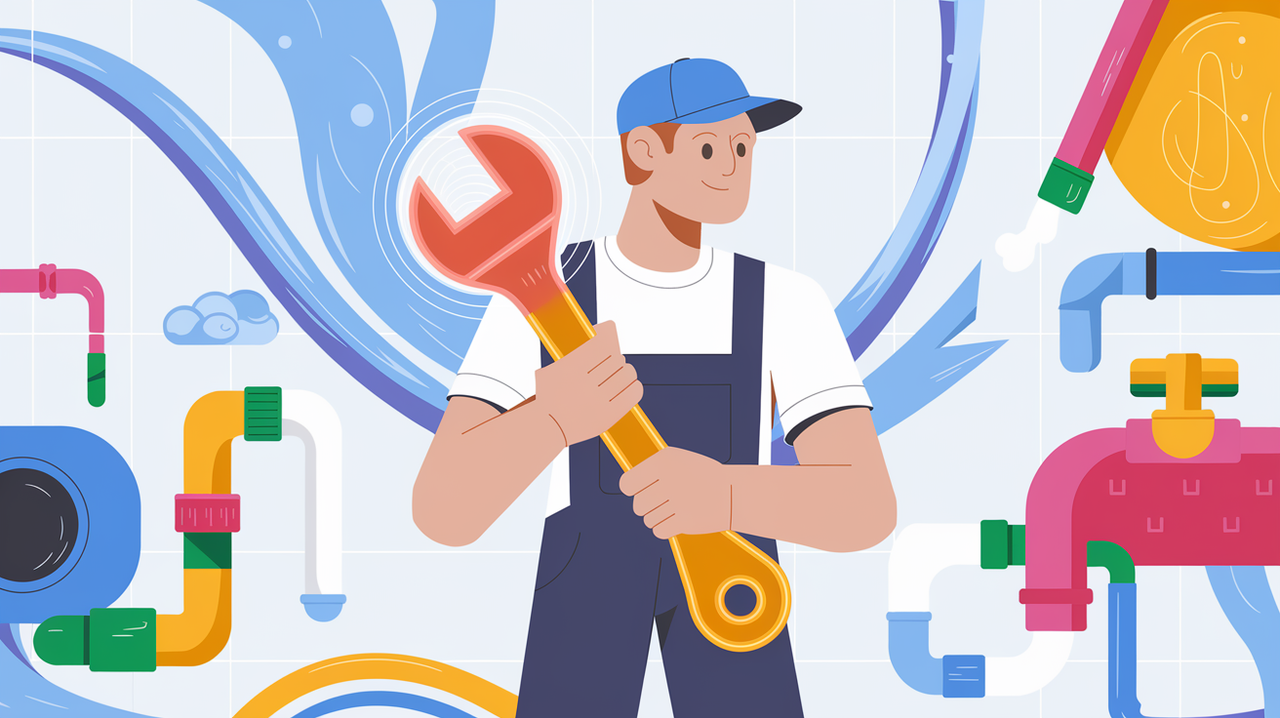Introduction
Buying your first home is an exciting milestone, yet it comes with a maze of responsibilities, one of the most critical being plumbing care. Understanding plumbing maintenance is vital to ensuring that your home remains comfortable and functional. Whether you’re dealing with leaky faucets, low water pressure, or clogged drains, having a solid foundation of plumbing knowledge will save you time and money in the long run. This comprehensive guide aims to equip first-time buyers with the essential tips and tricks for preventative plumbing care, how to prevent plumbing leaks, and the best ways to maintain plumbing systems.
The Ultimate Home Plumbing Care Guide for First-Time Buyers
Understanding Your Home's Plumbing System
What Is a Plumbing System?
A plumbing system comprises a network of pipes, fixtures, valves, and appliances designed to deliver clean water into your home and remove wastewater. Understanding how these components work together can be invaluable when addressing issues.
Key Components of Plumbing
- Pipes: Responsible for transporting water. Faucets & Fixtures: Points of access for water usage. Water Heater: Provides hot water for various needs. Drains: Carry wastewater away from your home.
By knowing these components, you can better identify problems when they arise.
Plumbing Maintenance Tips: Keeping Your System Healthy
Routine Plumbing Check-Ups
Just like regular health check-ups are essential for humans, routine plumbing inspections are crucial for maintaining a healthy system. Aim to inspect your plumbing at least twice a year. Look out for leaks around fittings, corrosion on pipes, and signs of moisture in walls or ceilings.
Signs of Plumbing Problems
Keep an eye out for the following signs:
- Unexplained increases in your water bill Water stains on walls or ceilings Mold growth Slow drainage
Addressing these issues promptly can save you from more extensive repairs later.
Preventative Plumbing Care: A Smart Investment
How to Prevent Plumbing Leaks
Leaks can lead to significant damage over time. To prevent them:
Regularly check exposed pipes for signs of corrosion. Replace old washers in faucets and showerheads. Insulate pipes during colder months to prevent freezing.Taking these steps not only saves you money but also extends the life of your plumbing system.
DIY Plumbing Maintenance: Empower Yourself
Basic Tools Every Homeowner Should Have
Having the right tools makes DIY plumbing maintenance much easier:
- Plunger Pipe wrench Adjustable wrench Teflon tape A variety of screwdrivers
These tools will help you tackle minor issues without needing professional assistance.
How to Avoid Clogged Drains
Clogged drains are one of the most common http://bergenfield-24-hour-plumber-in-tri-state-area-o-2.fotosdefrases.com/how-do-you-fix-hard-water-buildup-in-pipes-top-techniques-revealed plumbing issues homeowners face. To avoid this problem:
- Use drain screens to catch debris. Avoid pouring grease down the sink. Regularly flush drains with hot water and vinegar.
By adopting these habits, you'll significantly reduce the likelihood of clogs forming in your system.
Best Ways to Maintain Plumbing Systems
How Often Should You Inspect Your Home's Plumbing?
As mentioned earlier, aim for at least two inspections per year. However, certain conditions may warrant more frequent checks:
- If you live in an older home with aging pipes. After severe weather events that may have impacted your home’s infrastructure.
Regular assessments allow you to catch small issues before they escalate into costly repairs.
Seasonal Plumbing Maintenance: Preparing for Changing Weather
Winter Preparations
During winter months:
Insulate exposed pipes to prevent freezing. Allow faucets to drip slightly during extreme cold spells. Disconnect garden hoses from outdoor spigots.Summer Preparations
In summer:
Check irrigation systems for leaks. Inspect your sump pump if applicable. Clean gutters and downspouts regularly.Being proactive during seasonal changes helps protect against common plumbing issues related to temperature fluctuations.
Extending the Life of Pipes: Best Practices
What Are The Early Warning Signs Of A Plumbing Leak?
Early detection is key! Watch out for:
- Puddles or damp spots around sinks or basements. Increased water bills without increased usage. Musty odors indicating mold growth due to moisture buildup.
If you detect any early warning signs, act quickly by consulting a plumber or attempting minor repairs yourself where feasible.
FAQs
1. What should homeowners do in case of a plumbing emergency?
In case of a plumbing emergency, immediately turn off the main water supply and call a licensed plumber who can address the issue swiftly before it causes further damage.
2. How can I keep my garbage disposal working properly?
To maintain your garbage disposal:
- Regularly run cold water while using it. Avoid putting fibrous foods like celery or onion skins down it.
Cleaning it with ice cubes occasionally can also help clear away buildup inside the unit.
3. Should I use chemical drain cleaners or avoid them?
It's generally advisable to avoid chemical drain cleaners as they can damage pipes over time and may not effectively resolve clogs caused by solid objects or grease build-up.
4. How often should I replace plumbing fixtures?
Most fixtures should last between 10–20 years depending on usage; however, monitor them regularly for leaks or wear-and-tear which might necessitate earlier replacements.
5. What is hydro jetting and do I need it?
Hydro jetting is a professional method that uses high-pressure water jets to clear stubborn clogs in sewer lines; consider this option if traditional methods fail or if you've had recurring blockages.
6. How do tree roots affect underground pipes?
Tree roots can infiltrate sewer lines seeking moisture which may lead to blockages; regular inspections can help spot potential issues before they cause significant problems.
Conclusion
Homeownership comes with its own set of challenges; understanding essential aspects like plumbing maintenance will empower you as a homeowner while safeguarding your investment against costly repairs down the line. Remember that regular inspections are paramount—catching problems early saves both time and money! By following "The Ultimate Home Plumbing Care Guide for First-Time Buyers," you're well on your way toward becoming an informed homeowner equipped with practical skills needed for effective DIY plumbing maintenance!
With this guide at hand, you're ready to navigate through common pitfalls while enhancing your home's longevity! Happy plumbing!
